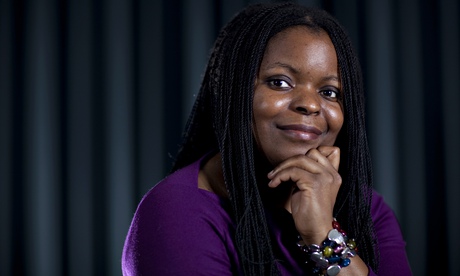
Petina Gappah powerfully probes the tricksy nature of memory through the story of Memory, or Mnemosyne, an albino woman consigned to Chikurubi prison in Harare, Zimbabwe, convicted of murdering a wealthy white man, Lloyd, her adopted father. She is the first woman in more than 20 years to be sentenced to death. As part of her appeal, she begins writing down her memories of what happened; her notebooks form the novel. Gappah, who won the Guardian first book award in 2009, is also a lawyer, her knowledge brought to bear in this story about the struggle for justice.
“I spent much of my life trying to be invisible,” says Memory, documenting the physical and emotional pains of being an outsider: how her albino skin blistered in the sun; how she was brutally bullied; how she wanted to crawl out of her own skin, “to disappear, to melt and only observe”. Gappah brilliantly exposes the gulf between rich and poor, for when Memory was nine years old her parents sold her to Lloyd and she moved from an impoverished township, Mufakose, to a grand house. “Crippled by fear and longing for home, I was saved by books,” she says. “I discovered books that became as necessary to me as breathing.”
The non-linear narrative mirrors the movement of memory, looping back and forth through time, swerving over sore points and later returning to prod the painful moments. (The novel abounds with wounds: “In my wild moments of loneliness, I thought of driving to Mufakose. But the wound, though partially healed, still throbbed enough for me to want to leave it undisturbed.”)Song weaves sensuously throughout the soundscape of this story: memories of “the scratchy sound of a record player” evoke Memory’s mother, who loved “mournful music… particularly the songs that were also stories”. The narrator records in her notebooks how she fell in love with music, praying for a tambourine of her own. She recalls the jazz records of Lloyd’s grandmother, and Lloyd’s “cassette tapes of Fleetwood Mac and Depeche Mode”. Her prison days are meanwhile filled with “songs of sorrow” when a prisoner dies, and punctured by protest songs.
The novel is startlingly vivid: Memory recalls the taste of a stolen mango, the suffocating smell of camphor, strelitzia flowers blazing with colour. Most poignant of all is what she cannot remember, such as the pain of realising that she can no longer picture her dead sister’s face. It’s through tiny details that Gappah grapples with the grand themes of fate and free will, love and loss, the collision of tradition and modernity, the impact of politics on the personal. Yet withholding details also creates a thriller-like suspense.
There are sections that could have been more fully developed, such as Memory falling in love for the first time, and occasional inconsistencies in voice are jarring, but these glitches aside, this is a moving novel about memory that unfolds into one about forgiveness, and a passionate paean to the powers of language.
The Book of Memory is published by Faber (£14.99). Click here to order a copy for £11.99







